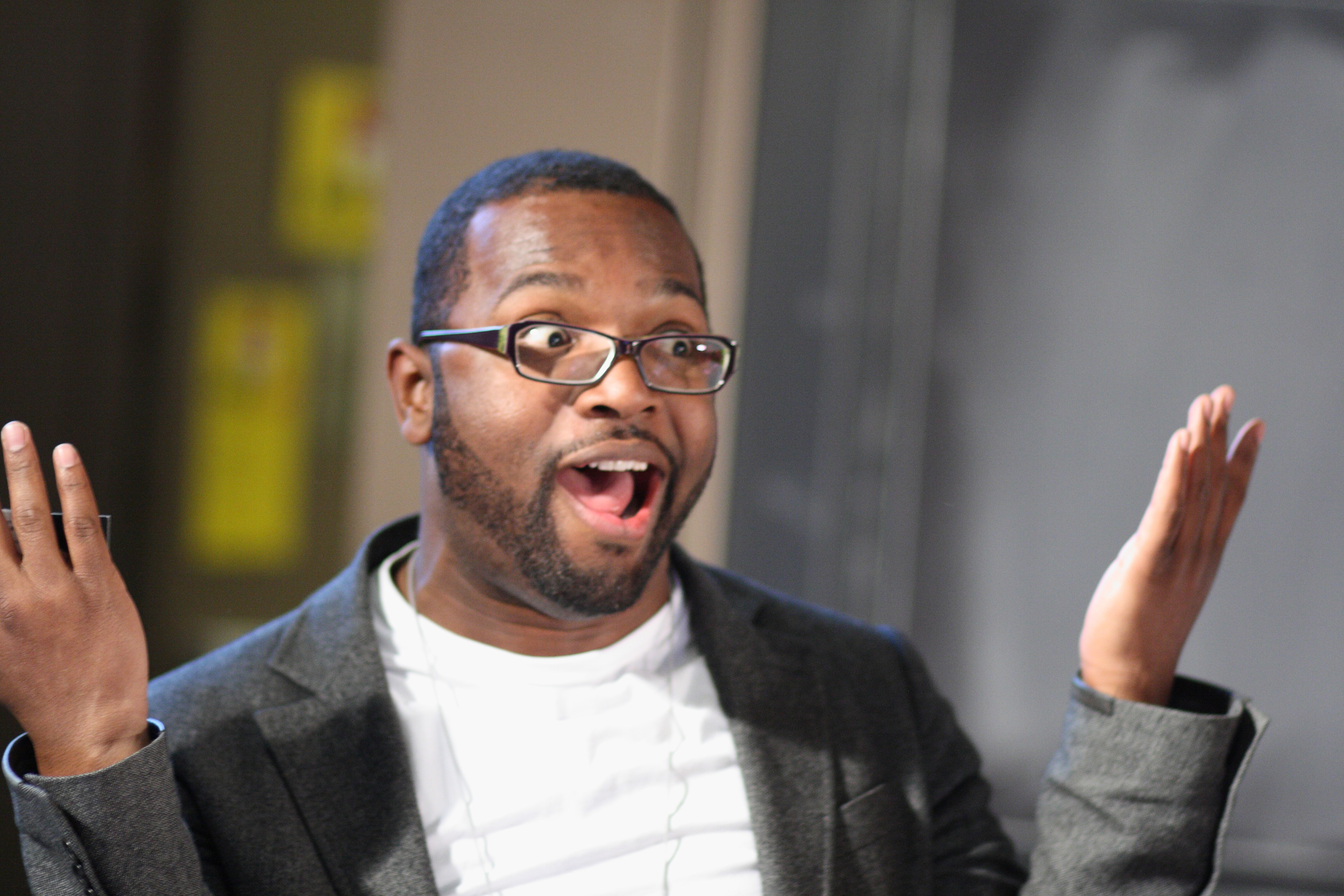
University Forum Speaker Baratunde Thurston Uses Humor to Achieve Political Goals
Paige L. Bailey
contributing writer
Baratunde Thurston, the self-proclaimed “technology-loving comedian from the future,” spoke of both the opportunities and limitations of a hyper-connected society on Jan. 29 in Trout Auditorium. This lecture was part of the 2012-2014 Bucknell Forum series “tech/no” that engages the community in a discussion regarding the role of technology in modern life.
After graduating from Harvard with a degree in Philosophy, Thurston pursued work as a stand-up comedian and wrote for “The Onion.” Thurston’s book, “How to Be Black,” is a New York Times Bestseller that delves into issues of race and identity in a humorous and interactive way. Additionally, Thurston launched his own startup website called Cultivated Wit, which employs humor through a technological medium.
In his lecture entitled “The Future Is Connectivity! Connectivity Will Ruin Our Future!” Thurston said his use of humor and technology is an “alternate way to engage” people. Simultaneously, technology makes people less connected to others in the moment, which presents a new set of challenges.
First, Thurston said that his personal ancestry influenced “How to Be Black.” His great-grandfather was a slave in the South but taught himself to read. This act of rebellion was punishable by death for a slave. His mother was also involved in the Civil Rights struggle and anti-war movement. Thurston stated that this “common thread” of questioning authority has brought him to use his talents to advance a message of social justice in his comedic, written and technological endeavors.
Despite his knowledge and passion for cutting-edge technology, Thurston said that society’s degree of connectivity allows people to “teleport” from their present circumstances. As an experiment, Thurston turned off all social platforms such as Facebook, Twitter and texting for three weeks. While he thought this would be unbearable, he felt a sense of relief by interacting more personally with the people around him. He even enjoyed having time to be in isolation with his thoughts.
Nick Pistone ’13 reflected on the difficulty of disconnecting. After the lecture, he decided to avoid Facebook and Twitter, but 20 minutes later caught himself “absent-mindedly” browsing on his Facebook page. Pistone agrees with Thurston that technology can be an escape, but also prevents us from holding conversations at times. Kasey Hampton ’13 echoed this sentiment, stating, “University students can relate to the message to ‘give your brain a rest’ from being constantly plugged into technology.”
At the same time, Thurston sees his work as fitting into a broader revolutionary movement that he believes is taking place. This revolution is in part rooted in the globalization of accessible technology. Through his humor and commitment to technological innovation, he said that he hopes to “bring people into a conversation about politics and social justice.” He said a clear advantage of technology is that people around the world can find each other and begin to question existing authority structures. This fact is an unprecedented condition in human history that Thurston believes has the power to change the locus of power in society.





















